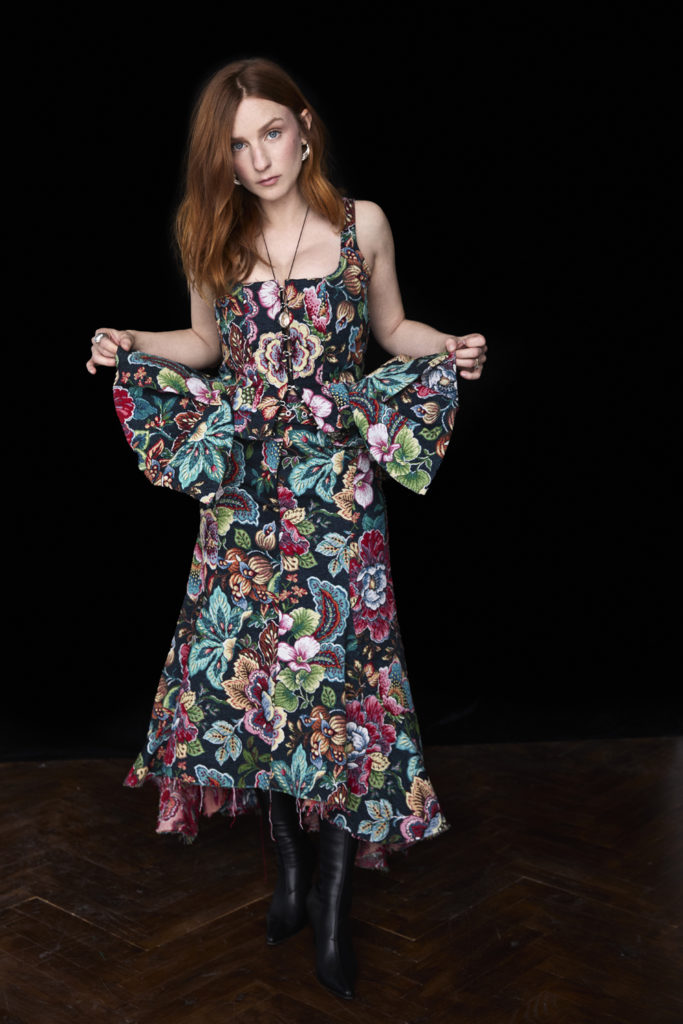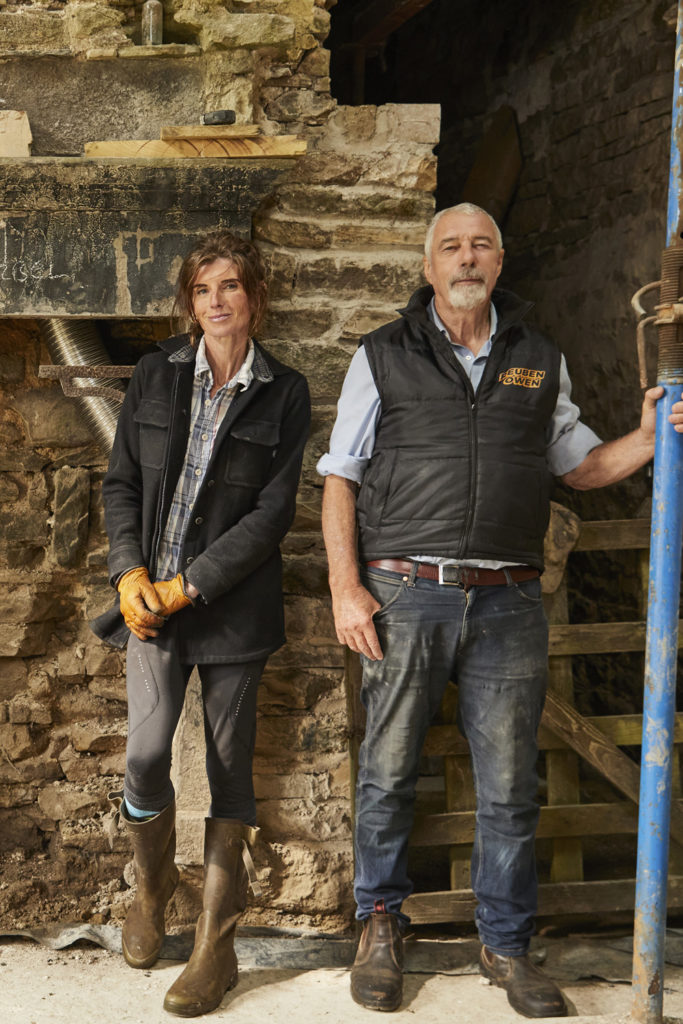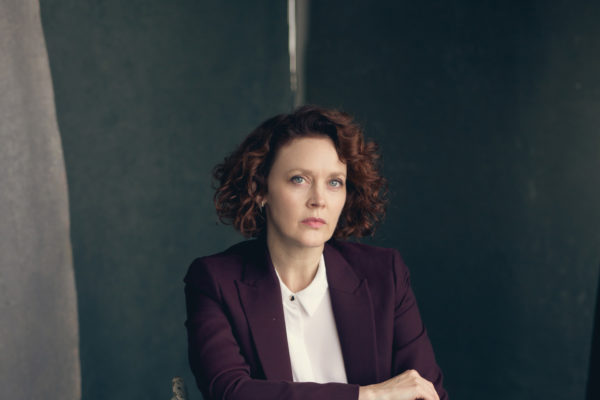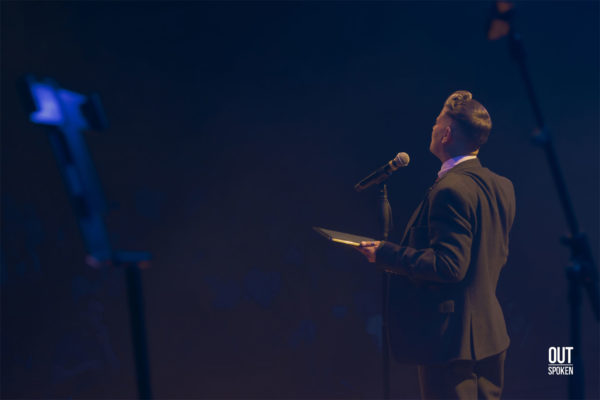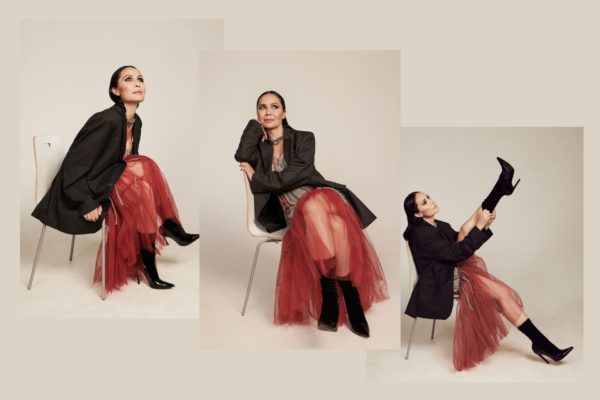Interview with Joelle Taylor: ‘There Has To Be Somewhere Else For Poets To Go’
By
2 years ago
The poet tells us about her own writing process
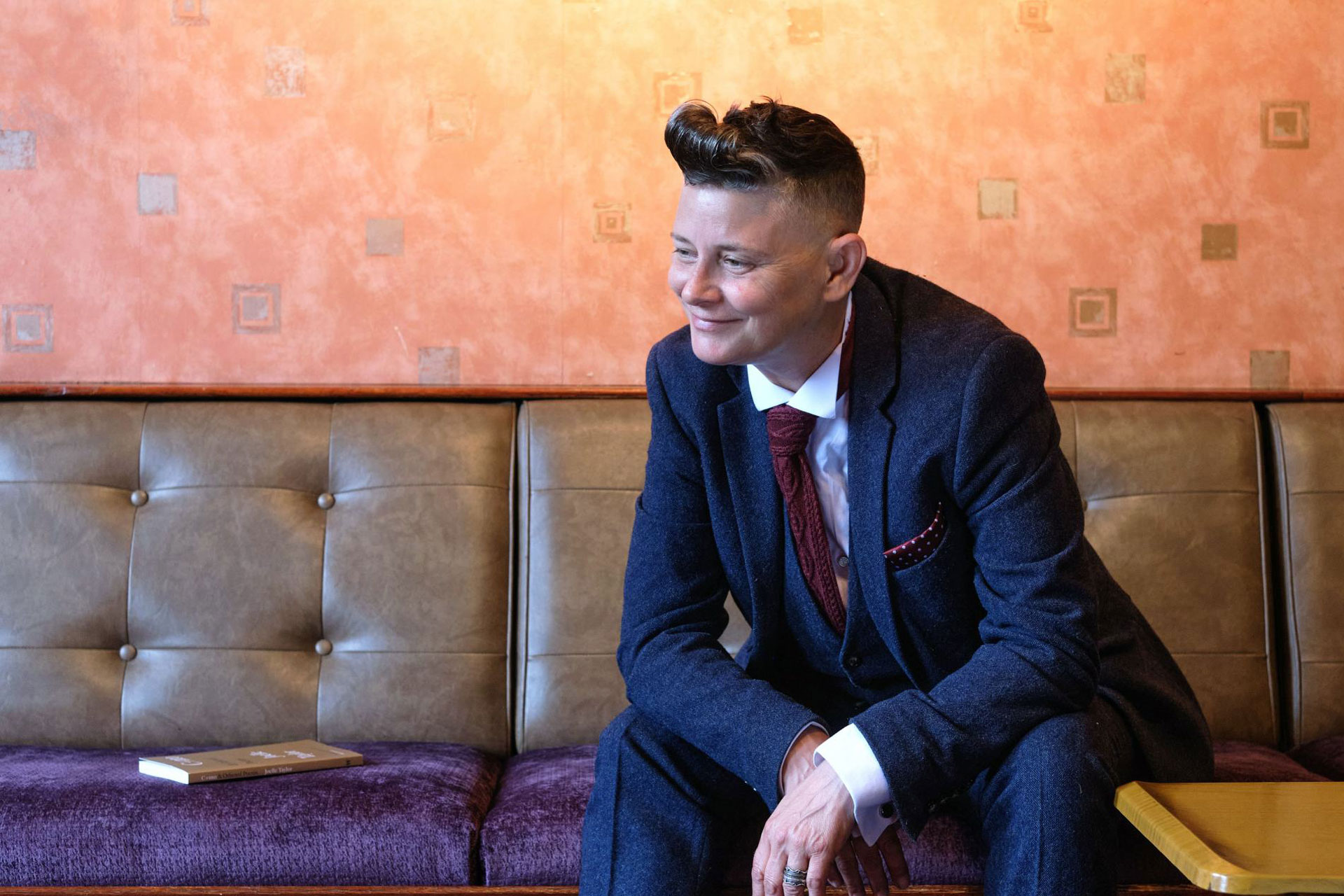
Thinking of getting into poetry, or want to be a poet? Joelle Taylor, TS Eliot prize winner and Out Spoken host, gives her take on her writing process, working with the best emerging musicians and world-leading poets at Out Spoken, and speaking in front of hundreds of thousands after the London bombings.
Interview: Joelle Taylor, TS Eliot Award-Winning Poet
How are you today?
Good, very good – especially excited this morning. Because I’ve discovered Instagram filters. I’ve been physically restrained from putting up pictures of myself with a beard and tattoos. I look good. Anthony [the other organiser of Out Spoken] has all morning been like, ‘what are you doing?’. But I look so good.
Out Spoken is organised by a very small team, isn’t it?
Yeah, and I mean we basically do it with five mates – all of whom are artists. Which I think is really at the centre of what makes this kind of form, the live poetry night, one of the last free arts. Because it’s pushed by artists rather than, you know, administrators and art professionals.
And that’s what drives everything with Out Spoken. This kind of urge, the drive to find a culturally democratic way of having these intense, joyous events.
And from that, you really get to gain that sense of connection between the audience, between each other, and then between them, the performers and the readers.
What really struck me about Out Spoken is the fact that it’s curated, with the flow between music and poetry – and not as an open mic night.
Yeah, I mean, open mic nights are, like, the whole of our industry invests on them. It’s the door, that’s how we all get in. And with Out Spoken, we’re trying to be the place after, once you get in the door, when you need to develop or get some sense of professional journey.
Without wanting to be like, entirely arrogant, the idea of there being ‘somewhere else’ that you can go for poets, to create a sense of constant development.
And we used to do floor spots too [more like an open mic], which were very, very important to us. Until we moved to the Southbank centre, actually, we’d do one, maybe two maximum, curation spots at five minutes each – someone we’d come across when working in [education settings] or leading workshops. It’d be a great way of getting them on the same stage as people like Kai Miller, you know? To be on the same bill. But when we moved into the Southbank centre, obviously things like Agent ID law comes into play.
It’s a little bit more contractual as you grow?
Yeah, exactly. So we’ve had to give them a rest for the moment, but we are in talks with the Southbank talk about how else we can develop people throughout the whole Out Spoken collective. We also all mentor.
How does your mentoring tend to look?
Since the pandemic, things have become a bit more digital. I might take on something like four or five people to mentor per season. Then, we’ll meet each week, they’ll send me materials and I take a half day reading and a half day feeding back and setting more exercises. So it’s a journey and you’ve investing in the process of development.
And obviously not it’s quite global – suddenly with the Zoom revolution, it means that I can now be poet in residence for Singapore Writers Festival. And writer in residence for Queensland Poetry Festival in Australia, equally far away in the world. Yeah. But it’s very much suddenly that your groups and the kinds of people you can work with plus the numbers massively increase. You know, I led a live workshop in which I spoke for one hour – and 7000 people came to attend digitally on Pride Day. And that’s insane.
Astonishing number of people.
Oh, yeah. When the London bombings happened, I delivered a poem on in Trafalgar Square with some of the slam battlers (I founded the National Youth Slams) and we got 24 hours to piece together a piece which lasted something like five minutes. And that was hundreds and hundreds and hundreds of thousands.
Was it terrifying?
Absolutely. Yeah. They all cheered in the middle gave all of us courage. If I could do it all again, I’d do it completely differently though.
Do you prefer your writing in the spoken or written form these days?
Both are equal addictions. For many years, it’s been the live stage. Because I came from the more sort of maverick stream of spoken word, which, you know, in the mid 2000s, turned into a professional outfit.
Most of us [before] were just sort of ne’er-do-wells, obsessed with writing, and obsessed with trying to bypass literary gatekeepers. Trying to create our own movement, which we did, and it was self fulfilling, and none of us needed to publish, because we were selling out and we had these incredible things.
But then the printing revolution started to come into force and started to print spoken word artists, and I became addicted to the page and its possibilities, you know. And now I’m three books later.
I’m trying to find the equal balance though because I need that time alone. You know, that period of intense introspection, as I can’t necessarily always write on the road, which is what I used to do. Because if I have six months of intense writing and aloneness, then the payoff for me is that I get to travel the world. And I take my work with me, and it enables me to connect with other people and work in different environments. And, you know, so it’s equal. Yes, I both read and speak.
A skill set that you do very well. I was very moved by your poetry at Out Spoken and I don’t necessarily feel like I’m someone who ‘gets’ poetry. I’d suggest it was the first time I’d connected with poetry.
A live event is all about connection. You know, we say poetry is the bridge between people, but you don’t… You really get to sense the breadth of structure when you’re in a live environment. And the Queen Elizabeth hall is a very big space, 900 seats. It’s extremely big to fill. And obviously, we were absolutely terrified backstage…
I can imagine.
But your biggest fear, as an organiser is like, what if I step out front? And there’s four people in the whole room? How do I swing this one?
You know, obviously, you know, there’s more than that, but really, it’s a space for connection.
We often showcase poets who do very introspective work, some of whom do very academic work, but the fact of their humanity in the space prevails and the story they tell just before reading… You understand how it makes you feel, you understand.
Poetry is not just cerebral, intellectual, logical, a lot of its anti logic is lateral thinking – is feelings.
You know, Ilya Kaminsky is like one of my all time favourites. I don’t know if you’ve ever seen him. His work is like a performance. It sounds, because he’s profoundly deaf, in slides behind him. And he’s got a very strong Ukrainian accent still. But he sings the work. That’s how he says it. And it sounds like opera. It’s incredible. The people I think who can really pull an audience through that are quite unexpected.
Robin Robertson is another favourite of mine. Just very different kind of poet. Very dense, very vivid. But these people you think of as kind of these caged academics, walk out on the stage and are hilarious…
Jackie Kay for example. As soon as she puts one step on the stage, the whole atmosphere changes. She brings that warmth, that holding, and all of that is as much poetry as what is written, I believe. Or maybe it’s the staging of the poetry. It’s the white spaces around the page. That’s what the performer brings: the whitespace. And the pauses, you know, and then further in the form, the way it’s written, we bring our bodies.
It’s the difference between it just being written down on the page, and then bringing it to life in spoken word, I guess?
Yeah. To be clear, how I think and certainly how Out Spoken thinks about poetry is that you have different experiences with a poem in the same way you get different experiences with a song. Sometimes you’re listening to a song and you do your homework, and you’ve got your earbuds in, sometimes you’re out in a club, listening to the same song, but there are a thousand people jumping up and down. Sometimes that song was what your boyfriend used to play. And now he’s had an affair. So it keeps changing meaning, and it keeps changing its power, and you keep changing the way you approach the piece as well.
Whereas reading is a very intimate act. You don’t read something often at the same time as somebody else. It’s a very personal experience. And there are fireworks and universes exploding inside you while you’re doing it.
But then when you get out and have this more extroverted experience, this more public experience, it takes that energy and pushes it out. So everybody has a collective experience of a piece of work. And that’s got its own power and value. And I think that’s why people come back to these events. Because, you know, it sounds like it’s going to take some hard work. But actually you find when you’re there you’re just laughing mainly, you get taken in and you might not remember the specifics of the words but you can revisit the words later.
Obviously poets and those in the arts are being hit by the cost of living crisis in a way where they might not be able to continue their practise. Can you tell me more about some access points for poets?
First is Arts Council – look at the developing your own creative practice fund. Then try the Society of Authors. The Royal Society of Literature have different funds available, too. But I think the first port of call is contacting the Arts Council and seeing what’s available.
And for those who want to donate to or fund the arts?
It’s great when people donate to the Poetry Society and the Poetry School. They’re both charities and they do amazing work in schools and with individual poets. Or you could invest in, for example, a production of a big poetry night rather than an individual poet.
Donate to the Poetry Society here, or donate to Poetic Unity by contacting them directly. The next Out Spoken event at the Southbank Centre is on 24 November and it returns in January 2023.

